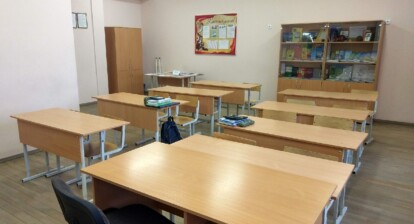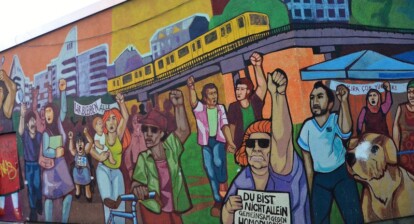1474 kilometres or a 30-hour train ride – that’s what it takes to travel from Bern to Bucharest. During a university project, Salome, a young journalist and storyteller from Switzerland, spends two weeks in Romania. To explore the country and meet young Romanians. Join Salome on part 2 of her journey, seeking to understand what communism, Western values and the European Union mean to young Romanians.
Read the first article of the mini-series here.
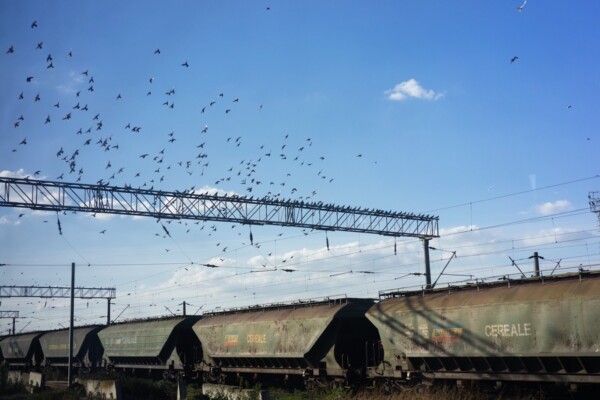
Romanians are often concerned that their country has a bad reputation abroad. (Photo: Private)
Travelling through the country, looking out of the train’s open windows, and feeling the still warm air playing with my hair. Sounds like the beginning of an excellent (and cheesy) book. The mountain range in the distance, the vast forests (did you know that up to two–thirds of the primary forests of Europe are located in Romania?), and the sunlit plains of Romania are not the only stunning elements in the country. The capital Bucharest is a bustling city, full of chic cafés, a lively art scene and a charming atmosphere.
“The Europeans Don’t Like us”
However, the young Romanians I have met have no great expectations about the world’s image of Romania. Many feel obliged to justify the circumstances in their country to foreigners. The legend of Dracula is among the most harmless stories they can think of. They list corruption, cheap labour, communism and thieves. Moreover, almost all interviewed persons expressed their concerns that begging Roma in other European cities would cast a bad light on the country. “The Europeans don’t like us,” the 21-year-old drama student Alexia says in frustration. And the question whether the student even counted Romania as part of Europe at that moment remained.
The Other Europe
“Are there any problems in Switzerland?” asks Eva, a 19-year-old art student with Moldavan roots. The young woman is not the only one who asks about the situation in Switzerland. Usually with a touch of resignation. The ones asking are aware that the answer will probably be yes. To name only one: an increasing polarisation in politics. And yet, to them, the problems in Romania seem overwhelmingly, almost incomparably huge.
A Challenge Called Democracy
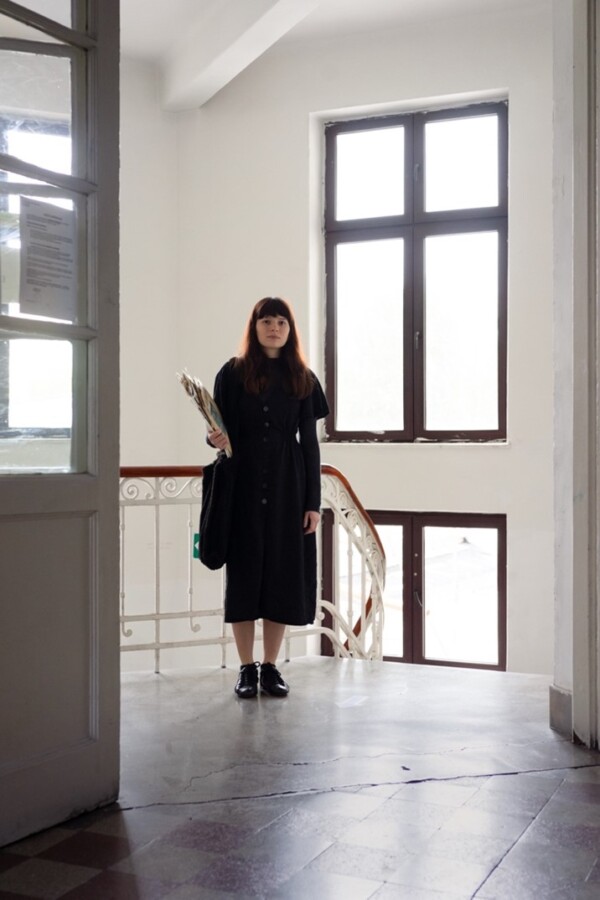
Art student Eva wants to leave Romania and hopes for a better future abroad (photo: private).
Although Romania became a democracy over 30 years ago, Eva doesn’t feel that Romanians live in a “real” democracy: More specifically, she is not satisfied with the political system. “Corrupt politicians may go to jail for some years, but afterwards they return to where they have been before. People are fed up with it.” Eva wants to spend her life in another country one day.
Romania’s Political Class: a Merry-go-Round
Although the vast majority of young Romanians believes in democratic values and a better future for their country (economically speaking), I felt that hope in politics (both in the system and the politicians) is missing. “Whoever we elect, they become just like those who were in power before,” says Eva. For the youth, the Romanian political elite seems to be a merry-go-round that turns its rounds to the same stuttering tune. Only the people on the wooden figures change.
Corruption seems to be a problem touching every level of society. On the Corruption Perceptions Index 2022, the country is given 46 out of 100 points whereby 0 is “highly corrupt” and 100 means “very clean”. All the people I met during my journey have examples to tell. Eva mentions that billions of euros are spent on improving the roads. But the reparations are so poorly done, that within no time, they are as desolate as they were before. The rest of the money ends up in the pockets of mayors or building companies. Eva’s boyfriend complains about the political elite. And about the illegally logged timber that eventually ends up on Ikea’s shelves, which is only possible because corruption is rampant at all levels, from the logger to the politician.
Democracy and “Western” Consumption
Even if some, especially older Romanians, long for the return of communism, 22-year-old Teodor does not want to experience it. Some advantages of a democracy – among them, a functioning health system, freedom, and the possibility of individual self-realisation – existed before the fall of communism. The big difference: What is now for all, was only available for a few before, Teodor says. Nevertheless, he associates the revolution of 1989 with frustration above all. A few made a lot of money out of it, he adds.
A Look at 1989
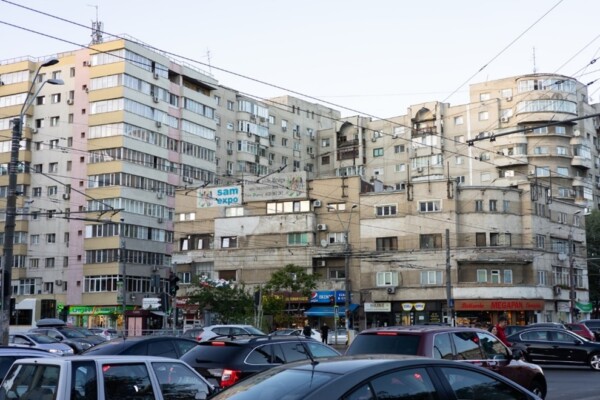
The buildings remain the same as in communist times, but life around them changes – for the better, as many young Romanians think (photo: private).
For Andreea, young people in the “West”, whom she met during her many stays abroad, are different. Her explanation: “During communism, everything was taken care of. People didn’t have to take responsibility, neither in the factory nor for themselves. That’s why we still find it difficult to take life into our own hands.“ But in her opinion, not only bad things remained from earlier times: “Romania feels a bit wilder, a bit more open. It’s not that we don’t have rules. But people agree that sometimes you can do things differently.” There is a way around it, that’s what they learned under communism, she says. Currently, this might manifest in increased creativity and coming up with innovative solutions, Andreea is convinced.
Between Trends and Traditions
Drama student Alexia is “so happy that we are finally civilised“. What she refers to are the strikingly fashionably dressed people in the streets of Bucharest, the many amenities such as cafés, parks, and trendy stores, and the recycling system in her home city. Her fear: That young people are losing touch with their traditions. On her mobile phone, Alexia shows videos of parades with men and children in goat costumes and bear skins. She raves about the popular hora dances (traditional circle dances), the sombre legends, the loud celebrations and lively weddings.
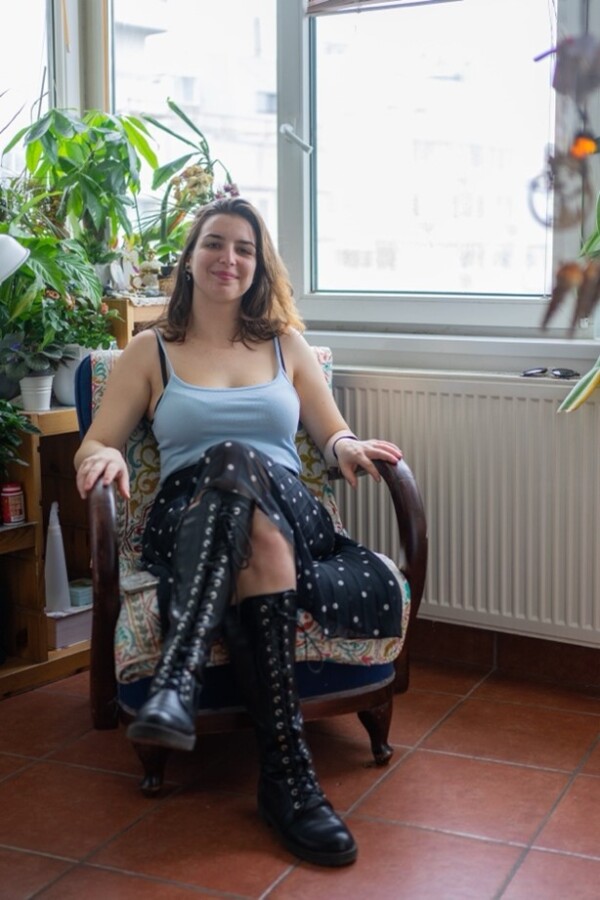
Alexia is an actress and lives in a shared flat in the centre of Bucharest. She is proud of Romania’s cultural heritage (Photo: Private).
The EU as Romania’s Savior?
Romania became EU member in 2007. Alexia, like many others, draws a positive conclusion about the membership. EU funds finance many Romanian projects in various fields – from agriculture and energy sector to the urban metro system. It is thanks to the membership that Romanian citizens can work in other countries. For young, well-educated Romanians, the EU seems to be a savior. It should allow Romania to make better use of its potential and resources in the future. The big hope: Catching up with other European countries thanks to EU funds of more than 31 billion euros that are expected to flow into the country between 2021 and 2027.
After All, we Are Both Europeans
Alexia is frustrated that other Europeans might see Romanians through the lens of stereotypical assumptions. Even though “we have so many things in common,” referring to the fact that both, she and I, study, both of us have moved to a big city and have a soft spot for café latte. Our families, our ideas and values, the issues which concern us are also similar. After all, we – a Swiss and a Romanian – are both Europeans, she says. And she’s right.
Strengthened Sense of Belonging
What all my Romanian encounters strengthened is my sense of belonging to the European community. Growing up in Switzerland, not even a member of the EU, didn’t foster such feelings. I am convinced that what unites us is much more significant than what divides us.
Some of the Romanians I met may work abroad one day and find their fortune as well-educated workers somewhere in Europe. However, I hope that the “brain drain” towards the West will somehow stop and the Romanian youth will be given perspectives for real change. What the young Romanians I met hope for is part of the “European project”: That not only the people in Bern and Bucharest feel close, but also the gap between our living conditions and prospects diminishes.
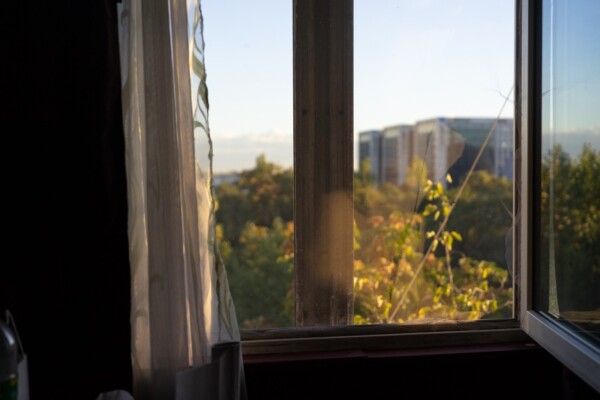
The EU gives many young Romanians hope for a better future (photo: private)



